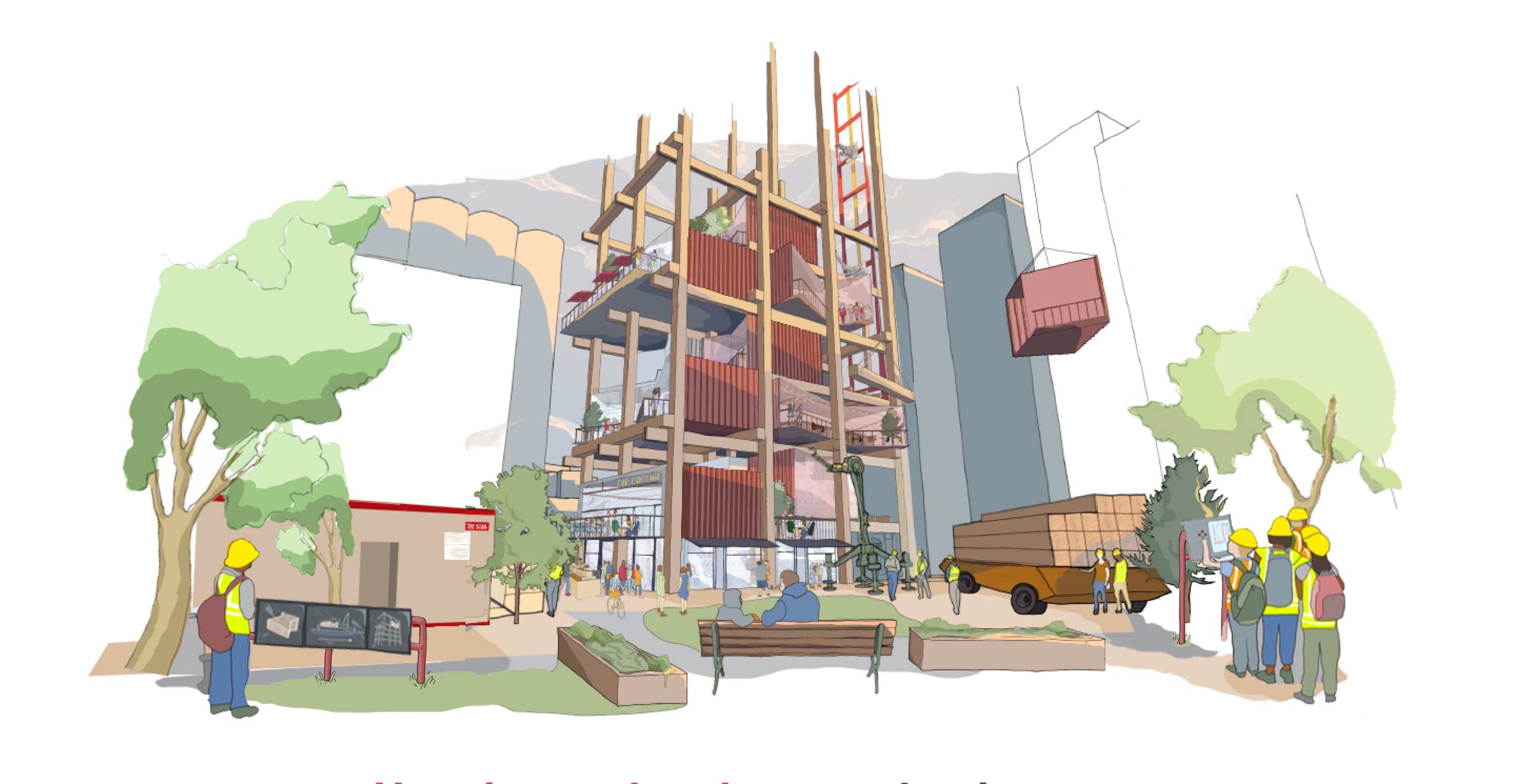Motherboard: Google Wants to Build the ‘City of the Future’ in Toronto, and Locals Are Worried
Posted November 3, 2017
Affordable housing activists were out at a town hall to make themselves heard.
Posted November 3, 2017
 Google has wanted to reshape a city for years, and it’s hoping to get a chance to execute its vision in Toronto.
Google has wanted to reshape a city for years, and it’s hoping to get a chance to execute its vision in Toronto.On November 1, Google and the city of Toronto hosted a town hall meeting open to the general public where people could ask questions about the ambitious project—titled Sidewalk Toronto—which aims to build the “city of the future.”
On October 17, Sidewalk Labs, one of Google’s sister companies under Alphabet that focuses on urban development, announced a proposal to completely redesign a part of Toronto’s waterfront. It has partnered with Waterfront Toronto, a government-backed organization that oversees the redevelopment of the city’s lakeshore, and which will make all the final decisions about the space.
If the city doesn’t approve of Sidewalk Labs’ final plans, which are still taking shape, it can end the project.
In its proposal, Sidewalk Labs suggests some pretty ambitious tech ideas, including roads with sensors that would be able to track the different modes of transportation (pedestrians, bikes, and cars) and determine how to adapt to different circumstances, a cheaper thermal grid, modular, adaptable buildings to lower housing costs, and a fleet of self-driving cars.
Though the proposal is almost 200 pages long, these are just initial ideas, and Sidewalk Toronto will be coming up with something more concrete in the next year. At the town hall, locals had some questions about specifics—and concerns about affordability, transit, and privacy. But they left with few answers.
The first thing I noticed when I arrived was how busy it was. The St. Lawrence Centre for the Arts, which seats about 900, had another 1,000 people on the waitlist. Town halls are usually pretty dry affairs, but this was run like a Google event.
It began with a moderated talk between Daniel Doctoroff, the CEO of Sidewalk Labs, and Will Fleissig, the CEO of Waterfront Toronto. Fleissig said that there is no actual plan in place for the waterfront project yet, only potential ideas. But the CEOs said they’re focusing on creating affordable housing, and ensuring a level of privacy to the public, due to the loads of sensors and data collection that will potentially happen in that space.
Outside the event, about 10 members of the Association of Community Organizations for Reform Now (ACORN Canada), which advocates for people of the lower and middle class, were doubtful of the claim of affordable housing.
“Our concern is, what’s affordable housing? 400 square feet for $1,200? That’s not affordable,” said ACORN member Patricia Edwards.
“It’s a multi-billion-dollar company, it’s all about profit,” Edwards continued. “So how can I expect them to understand?”
Micah Lasher, head of external affairs at Sidewalk Labs, told me that it’s premature to talk about the details of what affordable housing will actually look like, and they have to discuss with policy experts and stakeholders to figure out a plan.
“A more concrete vision for this place is going to emerge in the next year. There’s no blueprint for this that exists,” Lasher said.
Doctoroff said that Sidewalk Labs is prepared to invest $50 million into the Toronto project, even if there is a chance that the city declines the proposal at the end.
In the Q&A period, where questions were asked over Facebook Live and from the audience, one person asked why, if they are so focused on transit, that they haven’t partnered with a transit company. “That’s going to be part of the planning effort. I can’t give you a definitive answer, we both agree that mass transit to this place is critical,” Doctoroff said.
A local in the tech industry asked how the project would address the problem of wealth distribution in development projects like these, because “while they distribute a lot of benefits and services, they concentrate wealth and power quite significantly,” he said.
Doctoroff said it’s a hard question to answer until they have a real model in place. “But amongst ourselves, we’ve talked about different models of governance and ownership. I just don’t think we know the answers to that at all,” he said. He mentioned that people will be able to build new businesses and projects on top of the platform Sidewalk Labs creates, and profit from that.
Another person called out Doctoroff’s previous experience as a former deputy mayor of New York City under Michael Bloomberg, and their claim that they created the largest affordable housing project in the US, pointing out that affordable housing in New York is in “crisis.” They asked how he would make sure that wouldn’t happen here.
“I’ll agree and disagree with what you said. I think we did do a pretty heroic job of building affordable housing,” Doctoroff said. “I will also acknowledge that we didn’t do enough.” He said the housing inequalities happened after the financial crisis of 2008, where the economy of the city bounced back too quickly and created an imbalance.
It was clear that this town hall wasn’t about getting more information out to the locals, but about Sidewalk Labs gathering information for themselves. From talking to people there, it seems like most are optimistic for this to work, dystopian undertones aside.
To follow this initial meeting, Fleissig said that in about 10 to 12 days, the project will reach out for further community consultations.
***
Article by Jacob Dubé for Motherboard
